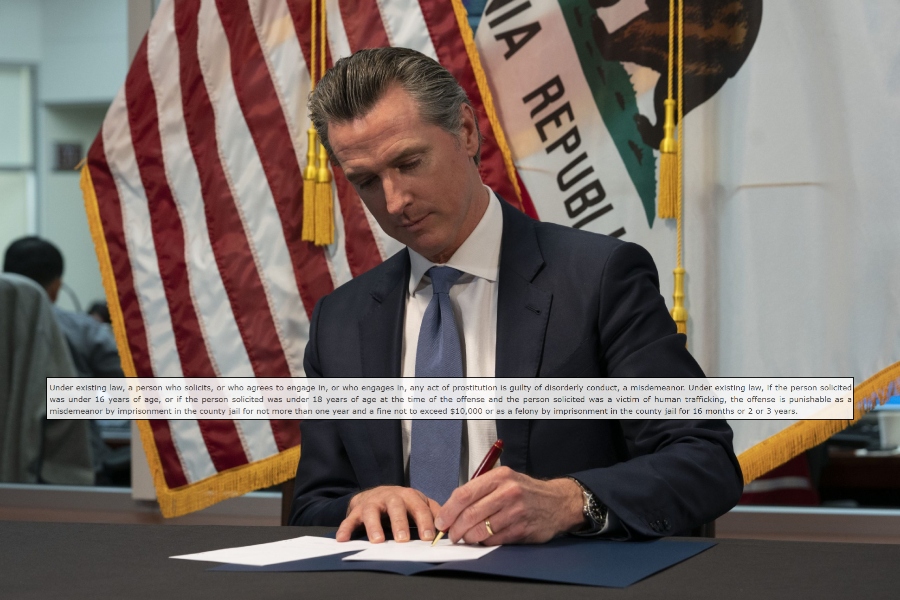California Gov. Gavin Newsom signed a bill to bolster penalties for adults who solicit minors for sex on July 30.
The new law will go into effect on Jan. 1, 2026, and increases prison terms for offenders convicted of soliciting teens under 16 for sexual acts.
The legislation, authored by state Sen. Shannon Grove, passed with bipartisan support in the California Legislature last month after dissent from some lawmakers regarding certain aspects of the legislation. Specifically, the Senate Public Safety Committee passed the bill, but only after rejecting amendments that would have weakened penalties for soliciting 16- and 17-year-olds.
Assembly Bill 379, which was initially introduced in February, establishes loitering with the intent to solicit commercial sex as a misdemeanor, imposes fines as high as $25,000 for soliciting minors under 16, and allows felony human trafficking charges for repeat offenders who buy sex from minors.
The bill also mandates sex offender registration for those convicted. Such offenses were previously classified as misdemeanors in certain cases, raising concerns over lenient sentencing.
“There is a real human cost to human trafficking and exploitation in our community,” Assemblyman Nick Schultz, a Democrat representing parts of Los Angeles, said during the hearing.
“So, while there are costs in terms of detection, and enforcement, and sentencing, we also have to balance that with the tradeoff and real cost of the lives that are impacted by this plague that is very much alive in our society.”
The bill drew support from the California District Attorney Association, the California Police Chiefs Association, the San Bernardino County Sheriff’s Department, the city of Stockton, the Association for LA Deputy Sheriffs, the League of County Board of Supervisors, and other organizations.
At a July 7 hearing for the bill, representatives for various public officials voiced support, including San Diego Mayor Todd Gloria, the San Diego District Attorney’s Office, Bakersfield Mayor Karen Goh, and the city of Carlsbad.
Among the bill’s detractors were the Immigrant Legal Resource Center, the LA Public Defenders Union, and the San Francisco Public Defenders Office, who say that the provision regarding those who are loitering with the intention of purchasing sex could lead to profiling and increased deportations for noncitizens who are charged with felonies.
Also opposing the bill was the director of programs at Rising International, Jess Torres, a child trafficking survivor, who said it depends on a vaguely defined suspicion of intent to do something criminal, rather than evidence.
Share your thoughts by scrolling down to leave a comment.













